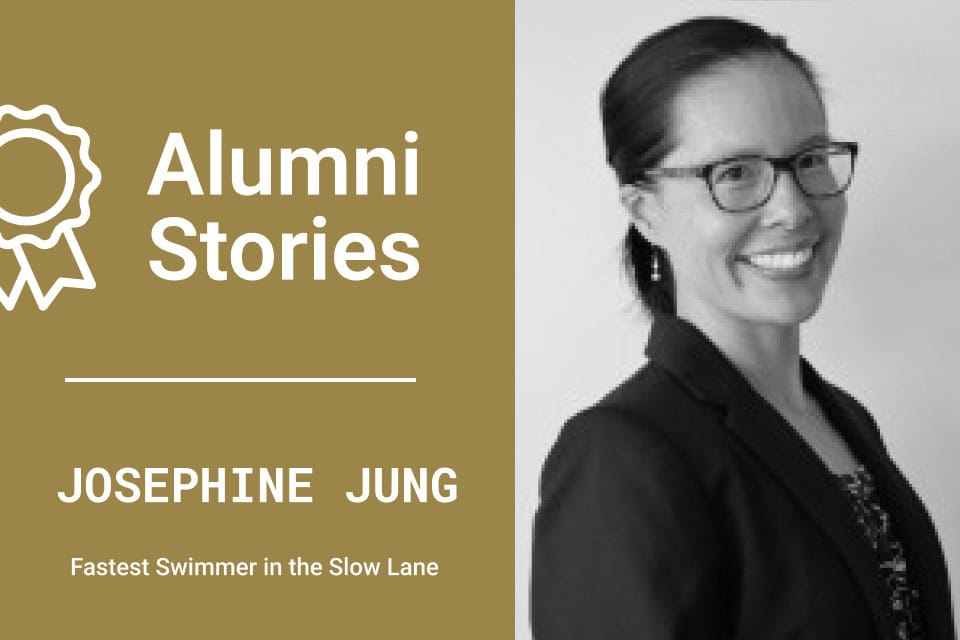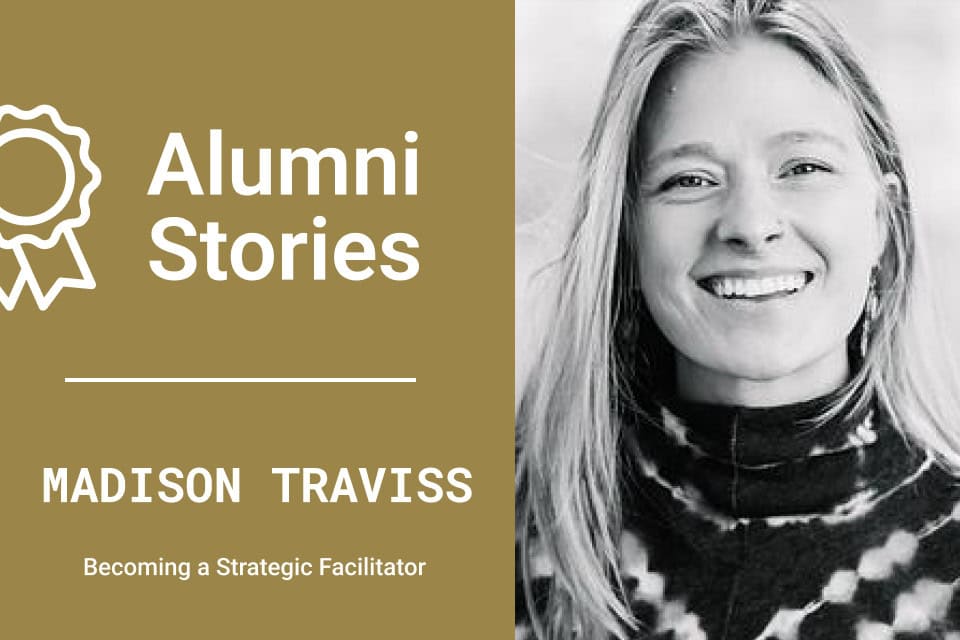How curiosity and a commitment to justice led to a transformative journey in facilitation
A Curious Mind, Shaped by History
My journey toward facilitation began long before I had a name for it. I think back to when I was 10 years old, on a trip to London with my grandparents. It was my first big adventure without my parents, and the city itself, with its rich history, was awe-inspiring. I remember standing on the escalator of the underground, after I’d just been fascinated to the point of fever pitch by a visit to the Tower of London, and my grandad turned to me and said something that would stay with me forever: “You have an inquiring mind—don’t ever lose that.”
That moment crystalized something for me. I’ve always been driven by questions, an insatiable curiosity about the world and the people in it. This curiosity, this desire to understand things more deeply, shaped much of my identity and the career path I would later follow.
But curiosity alone wasn’t enough. As I grew older, I became obsessed with questions of justice. What is justice, truly? How do we build a more just society, and what does that look like in practice? These questions led me to study law at university, reasoning that surely the justice system held the answers to these questions. It was during this time that my understanding of justice began to evolve—and eventually, to question whether the legal system reflected the highest and best expression of justice.

Limits of the System and the Power of Dialogue
After studying law, I entered the criminal justice system in London, working for the Crown Prosecution Service. I thought that through this work, I could contribute to a more just society. I wanted to be part of a system that delivered fairness and upheld justice. But what I found fell short of those ideals. I went into the legal profession because I believed in justice, and I left it for the same reason.
I realized that the system wasn’t addressing the underlying inequities that society holds. This was not the justice I envisioned. I became disillusioned. My journey with the law had opened my eyes to the limits of the system and the deeper questions around how true justice could be achieved.
At that point, a move to Vancouver gave me the opportunity to pursue a completely different path. I transitioned into the outdoor industry, working intially for Mountain Equipment Co-op, before eventually landing at Arc’teryx. While it seemed like a shift away from justice work, my role there actually deepened my exploration of what justice could look like in practice. Every year, we held an internal sample sale that raised a meaningful sum of money and I started asking questions about where that money was going and what we were doing in service of community.
In asking these questions, I found myself facilitating conversations across the company and with grassroots organizations. We explored deeper questions about the role of the land, the impact of our work on Indigenous communities, and how we could ensure equitable access to the outdoors for everyone. These conversations were transformative for me. I began to understand that justice wasn’t just about laws or rules—it was about dialogue, inclusion, and co-creation.
Finding Voltage Control and Embracing Facilitation
As my role at Arc’teryx evolved, I realized that everything I was doing involved facilitating dialogue—bringing people together to explore complex issues and co-create solutions. But I also recognized there were challenges, especially around power dynamics. As a representative of a company that held both financial and social influence, I was in a position of power in conversations with community leaders, many of whom had not been centered in these discussions before. There was a tension there—how could we have honest, transparent conversations when power imbalances were present?
I began to search for ways to do this work better. I needed to learn how to create truly open, equitable spaces for dialogue where everyone could contribute, regardless of the power dynamics at play. That’s when a mentor of mine, Darcy Winslow, suggested I reach out to Erik, the founder of Voltage Control. She knew I was curious about deepening my facilitation skills, and after a few conversations with Erik, I knew I had found the right fit.
For years, I had been trying to secure internal funding for facilitation training, but when that didn’t happen, I made the decision to invest in it myself. I knew this was a skill I needed, not only for my own growth but also to serve the communities I was working with. Voltage Control offered exactly what I was looking for: a framework that aligned with my values, where facilitation was not just a skill, but a way to shift power and create spaces in which true co-creation could flourish.
Gaining Confidence and Tools for True Dialogue
My experience with Voltage Control exceeded all my expectations. From day one, I knew I was in the right place. The cohort I was part of was a group of passionate, collaborative individuals from diverse backgrounds, all eager to learn. We weren’t just learning techniques; we were learning how to facilitate conversations that matter. The emphasis was on creating spaces where people could contribute their best ideas, no matter their position or background.
One of the most impactful parts of the certification was watching Erik in action. His calm and intentional approach, especially when it came to embracing silence in conversations, really stood out to me. It was something I hadn’t seen done well before. The ability to hold space, to allow for pauses where people could gather their thoughts and truly reflect, was transformative. I learned how powerful silence can be in eliciting deeper insights and fostering trust among participants.
Beyond the techniques, it was the relationships I built during the program that became highlights. One of my cohort members, Ashley Morgan, even helped me design the website for my new consulting business after the program ended. The level of openness and collaboration among the group was something special. We didn’t just learn together; we supported and inspired one another. I’m still in touch with several of them today, and those relationships have become invaluable in my ongoing journey.
Applying Facilitation to Create Real Change
After completing the certification, I started to see everything through the lens of facilitation. The skills and frameworks I learned gave me the confidence to approach my work differently. One of the biggest shifts was in how I structured meetings and conversations. Before the training, I often felt uncertain about how to navigate group dynamics, especially when tensions arose or when voices dominated the discussion. Now, I have a toolkit of methods that allow me to guide conversations more effectively and ensure that everyone’s voice is heard.
One of the first opportunities I had to apply these skills was with a client who needed to reimagine a key project. Previously, I might have hesitated to push back on their proposed agenda. But now, I had the confidence to advocate for a more intentional structure, one that created space for deeper collaboration. I knew how to use tools like “1-2-4-All” to foster inclusivity and ensure that ideas weren’t just coming from the loudest voices in the room. The result was a far more productive meeting, and the client later commented on how the new structure had made all the difference.

In every meeting, I now bring a level of flexibility and awareness that I didn’t have before. I can sense when the energy in the room shifts and adjust the approach in real-time. Whether it’s encouraging a round of individual reflections or breaking into smaller groups to unlock more thoughtful contributions, I’m able to create an environment where people feel comfortable sharing their ideas. It’s made me a better facilitator, but more importantly, it’s made the outcomes of these conversations more impactful.
Shaping a More Just and Joyful Society
With the skills and confidence I’ve gained, I’ve now taken the leap into starting my own consulting practice, Collective Imagination. My mission is to help organizations co-create pathways toward a more just and joyful society. The work I’m doing now is deeply aligned with my values—centering community voices, facilitating meaningful dialogue, and addressing systemic inequities. I’ve been fortunate to work with some incredible clients who are just as committed to this vision as I am, and I’m excited about the possibilities that lie ahead.
Beyond my consulting work, I’m also applying these skills to the boards I sit on, such as the Outdoor Diversity Alliance and the Vancouver Foundation. I’m helping these organizations navigate complex conversations, build deeper relationships, and drive systemic change. In the long term, I have a dream of scaling these efforts, potentially working on a national level to co-create a collective vision for Canada, one that is inclusive and rooted in justice. It’s a big vision, but if there’s one thing I’ve learned, it’s that real change starts with open, honest conversations.
If you’re thinking about getting certified, I can’t recommend it enough. Facilitation isn’t just for business meetings—it’s for any space where dialogue happens. Whether you’re working on social justice, UX design, or just trying to build stronger relationships, facilitation is a powerful tool for creating meaningful, lasting change. The skills I’ve learned have transformed how I approach my work and how I contribute to the world around me. If you’re ready to deepen your impact, Voltage Control is the place to start.


